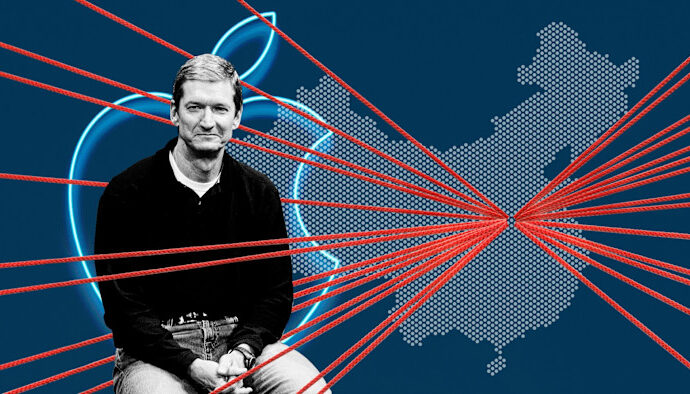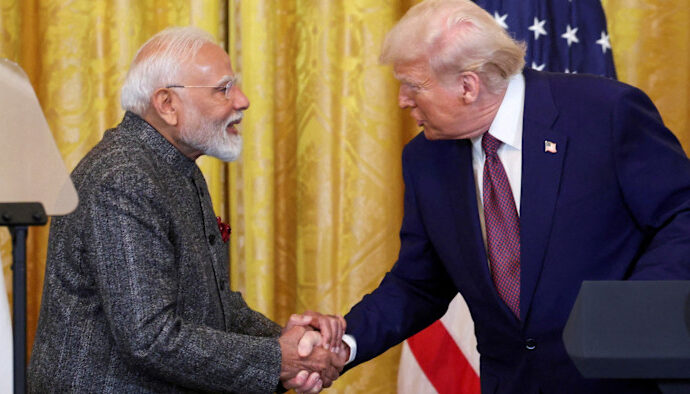Unlock the Editor’s Digest for free
Roula Khalaf, Editor of the FT, selects her favourite stories in this weekly newsletter.
The EU has refused to hold a flagship economic meeting with Beijing ahead of a leaders’ summit next month because of a lack of progress on numerous trade disputes, according to four people familiar with the matter.
The bloc’s stonewalling of the talks, known as the EU-China High-Level Economic and Trade Dialogue, underlines the deep divisions between the sides despite Beijing’s efforts to court Europe as a counterweight to the US amid President Donald Trump’s tariff war.
The economic dialogue often serves to lay groundwork for the EU-China leaders’ summit, which the people said was this year set for July 24-25 in Beijing. The leaders’ summit this year has particular diplomatic significance, marking 50 years of bilateral relations.
“China would like to have it [the economic dialogue], but we are seeing no progress in all of our talks,” one of the people said.
The bloc would hold the meeting only if there were agreements at the summit to implement, said a senior EU official who requested anonymity.
The EU and China are locked into a growing number of trade disputes. Brussels last year imposed tariffs on Chinese electric vehicles after it found the industry benefited from huge state subsidies. In response, China imposed anti-dumping duties on EU brandy and opened anti-subsidy investigations into pork and some dairy products, which could lead to further tariffs.
In recent weeks, the EU has banned Chinese medical devices from most public procurement contracts and placed anti-dumping duties on Chinese hardwood plywood, a construction material.
Tensions had been exacerbated by Chinese restrictions on rare earths exports, which Beijing introduced in retaliation for US tariffs in April, the people said.
China holds a near monopoly on production and processing of many rare earths, which are used in electronics, electric vehicle motors, wind turbines and defence applications. Beijing’s slow issuance of export licences has prompted some European producers to warn of shutdowns.
The omission of the talks will lower expectations for any concrete gains at the leaders’ summit, though another EU official who asked not to be named noted that the economic dialogue was held irregularly and did not always precede the summit.
China will be represented at the summit by premier Li Qiang, the country’s second-highest ranking official, rather than President Xi Jinping, despite the meeting taking place in Beijing and the historic half-century anniversary, which was seen as a snub in Brussels.
The last EU-China leaders summit in December 2023 was preceded by talks between economy and trade commissioner Valdis Dombrovskis and Chinese vice-premier He Lifeng.
At that meeting, Dombrovskis raised the issue of European businesses’ access to the Chinese market, particularly for agrifood exports, medical devices, cosmetics and infant formula.
Most of these issues remain unresolved, according to Maria Martin-Prat, the EU’s top China trade official.
“There’s a huge amount of work that needs to be done between now and the summit,” she told a conference in Brussels on June 5.
She added that much of that work consisted of “issues which we have been discussing with them for a long time”.
“We’re talking about the manner in which they apply some of their horizontal laws to the detriment of foreign players. Whether we’re talking about data regulation [or] . . . espionage laws.”
A European Commission spokesperson said the bloc was focused on preparations for the summit.
They added that Maroš Šefčovič, the EU’s trade commissioner, was in regular contact with Wang Wentao, China’s commerce minister, with technical discussions on areas including export controls, market access and trade.
China’s commerce ministry did not immediately respond to request for comment.
In a statement, China’s foreign ministry said that “deepening dialogue and co-operation between China and the EU benefits both sides” amid “increasingly turbulent” global relations, “rising unilateralism and economic bullying”.
“We are willing to work together with the EU side to . . . promote the stable and long-term development of China-EU relations,” the ministry added.


